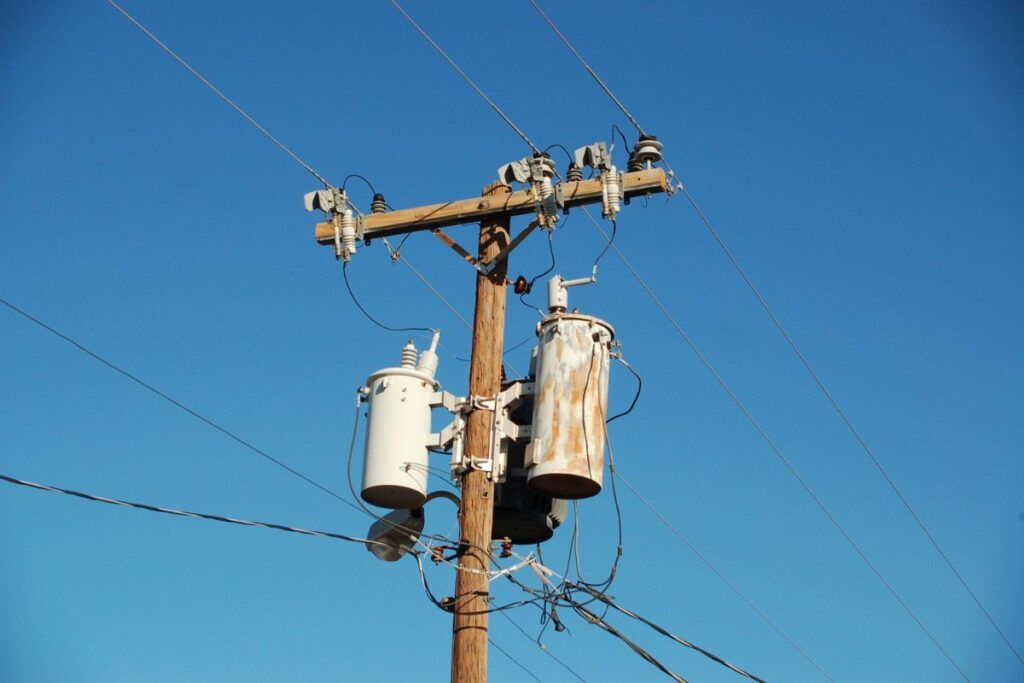Power going on and off is common. However, it is concerning if the power goes out and comes right back on or power goes out frequently without any proper explanation. So, what does it mean when the power keeps going on and off?
The typical reasons your power keeps going on and off are overloaded circuits and weather-related issues. The problem will resolve once you decrease the load and the weather becomes normal. Other reasons include faulty panels, loose connections, power surges and theft, and outdated systems.
There is nothing to panic about if your power constantly goes on and off. Keep reading this article until the end to understand the common reasons and how to solve them immediately.

Check out our list of top-handpicked products for all your electrical, appliance, and HVAC system needs to keep your home running smoothly.
This post includes some affiliate links.1. Overloaded circuits
Adding too many appliances in one circuit can overload it, especially if the current load exceeds the circuit’s load limit.
As a result, your breaker will trip constantly, and power will go away.
The power returns after some time but will turn off again if you do not reduce the circuit load.
Sometimes, it will repeatedly occur, especially if your house is old with a single circuit.
A circuit breaker generally lasts 35 years but will reduce to 25 due to regular wear and tear.
However, power going off due to a tripped breaker is a good sign because it won’t lead to any dangerous issues.
When your breaker has tripped due to overloading, reduce the load and reset your breaker.
You can identify the tripping by looking at the breaker. The switch will flip to the OFF position or stay in the middle.
If the switch has flipped OFF, turn it ON.
If the switch is in the center, flip it to OFF, wait for some time, and then turn it ON.
Some breakers have a RESET button, like GFCI. Press the RESET button for a few seconds and release it to turn it on.
If it still trips, install a new breaker with a higher amperage load.
2. Loose or damaged wire connections

Loose or damaged wire connections can turn the power on and off frequently.
Loose or damaged wire connections will cause short circuits, make the wires touch the wrong materials, and start a fire.
A short circuit happens when the current flows elsewhere instead of through the return path.
It can further trip your breaker and lead to power outages.
Electrical devices, like refrigerators, heaters, and fans, can cause a short circuit. It is a dangerous issue and should be solved immediately.
In a short circuit, your electricity flow gets interrupted, and your house loses power.
To fix it, you need to tighten the loose wires and replace the frayed wires. However, you should hire an electrician to fix the problem.
3. Faulty electrical panels
Like other electrical products, the electrical panels and breakers will have issues.
These electrical panels and breakers are vulnerable to moisture.
If water gets into the panel or breaker accidentally, your house power will start going on and off frequently.
The electrical service panels and breakers will need a replacement fuse.
The fuses are easy to install, but a professional electrician should do it.
If you ever notice that your house power is going on and off, you should contact your electrician to get your panel checked.
4. Bad breaker switch

A bad or broken breaker switch will negatively affect your house’s power, even if the breaker is fine.
Bad breaker switches will lead to power fluctuations for that part of the house it controls. It can also affect the entire house if it is very old.
However, the power returns after a few seconds if only 1-2 breaker switches are bad.
Replace the breaker switch to fix the problem.
The cost of the switch will be around $45 to $60.
If you have an old breaker with multiple damaged switches, replace the entire circuit instead of fixing the switches.
5. Weather-related issues
Weather is a major reason behind power going on and off frequently for short periods.
Bad weather conditions with storms, thunder, and heavy rains will badly affect the house’s electrical grid and breaker and result in frequent power outages.
Strong winds, heavy rains, and fallen trees will affect the power lines connected to your house and cause a brief or long power outage.
If the condition worsens, a house will not have power for days until the power lines get fixed.
Some storms are so fierce that they damage your house’s circuit breaker.
You have to replace such breaker panels once the weather normalizes.
The top 4 natural phenomena where power outages are normal are:
- Hurricanes
- Tropical storms
- Earthquakes
- Tornadoes
These problems get fixed once the electrician changes the wires.
6. Power company issues

If the power company has some problem with their equipment or transmission lines, your house will have frequent power loss.
The problem will be solved after the company has fixed the issue.
If you visit a power station, you will find multiple components that have aged or been damaged due to daily wear and tear.
As a result, the power will go on and off until the equipment changes.
Transmission failure occurs when the step-up transformers fail, or the power lines break down or are damaged.
As a result, power will struggle to reach the distribution system, thus making the power go on and off frequently.
Regular maintenance on these grounds will solve the power issue.
7. Outdated electrical systems
In recent times, there has been an increased use of electrical appliances.
You will need modern electrical systems with high amperage to handle the demand for electrical appliances.
If your house’s electrical system is old and outdated, it won’t be able to handle modern electrical devices.
As a result, the power will go on and off multiple times.
You should upgrade your electrical system with a higher amperage to avoid frequent power outages.
8. Overheating equipment
Overheating in electrical devices like refrigerators, air conditioners, or washing machines can lead to power fluctuations.
Overheating can occur due to running the appliances for longer periods without breaking or some component inside the appliance creating the issue.
Faulty or exposed wiring can also lead to overheating.
When you see such wires, there will be a notable risk of fire hazards.
Maximum overheating issues are caused due to such wiring.
It can also start a wire, especially when the exposed wires come in contact with the wrong materials.
Avoid using an outlet connected to faulty or exposed wires.
You should hire a professional to investigate the matter and fix the problem.
9. Power surge

A sudden spike in the voltage causes a power surge, which travels through the electrical distribution system into your house’s power system.
It mainly occurs during a lightning strike or thunder.
As a result, your house’s power will keep going on and off until the surge is fixed.
Even after re-establishing the electricity after the power outage, power surges will continue.
Use a surge protector if you live in areas with frequent power fluctuations.
Use surge protectors to protect your appliances from the damage caused by power surges and prevent power fluctuations.
The surge protector will ensure only a certain amount of electricity reaches your house equipment and block the excess electricity to keep your equipment safe.
The only disadvantage of the product is its cost, due to which putting it in each of your outlets will be a big investment.
If you have a small budget, you can use the protector only for some specific appliances.
10. Power Theft
Using electrical current without permission by tapping on a power line will make your house’s power fluctuate.
In simple words, it is stealing power.
But how is it done? Here are some power theft types:
- Tampering with the meters and seals will make the mechanical disk from working.
- Bypassing the meter by illegally connecting it to the fuse prevents the rotating disk from working and prevents the recording of energy consumption.
- Tapping the wires and cables illegally to the bare or underground cables can help steal power.
- Disconnecting or breaking the circuit wires from the circuit terminal block and inserting a triple breaker in the circuit will lead to power theft.
- There will be illegal terminal tapping of the overhead lines on the transformer’s low-voltage side. The theft will happen either by fish poles or by flying connections.
- Extending the service connection for purposes other than the main purpose leads to theft. For example, if you use a domestic connection for commercial, construction, or industrial purposes, it is a power theft.
You can prevent it by the following steps:
- Smart meters can prevent electrical theft, detect tampering with electrical equipment with the help of in-built tamper detection, and send notifications during a tamper attempt. It will record the electricity consumption at short intervals and communicate it back to the utility.
- Utility companies have included rewards for customers complaining about electricity theft.
- Several regions have included technical interventions by enabling the computerization of the infrastructure distribution, feeder metering, and feeder segregation.
11. Animal-related issues
Sometimes, the animals will reach near the wires and chew them up, leading to frequent power outages.
When the animal cheats the wire, you will face power constantly going on and off.
If it cheats the whole wire, you have to replace it.
You need to call an electrician to replace the wires.
Even if your wires have insulation, the rodents’ teeth are sharp enough to chew the insulation.
Besides the electrician, you should also call an exterminator to get rid of the pest or keep them away from the wires.
12. Maintenance and repair

The electrical equipment and utilities will require routine maintenance and repairs.
During the maintenance and repair time, you will face power fluctuations.
Most of the time, the utility companies in your area will inform you about the routine maintenance and repair time.
Though such blackouts in the house are unpleasant, keeping everything in good shape is mandatory.
To prevent customers from having issues due to power fluctuations, utility companies try to perform maintenance when power outages have the most negligible impact on them.
How can you Identify the source of power fluctuations?
By now, you have understood that power fluctuations occur due to different reasons. But how do you pinpoint the actual source?
Here are some ways of finding out the source of the power fluctuation:
- Power fluctuating in the middle of the storm means you cannot do anything until the weather becomes normal.
- If the power fluctuates throughout the house regularly, call an electrician, as it can be an outdoor issue, wire issue, or circuit problem.
- If the power goes on and off in a single room, check the breaker of that room. It could be due to overloading. Reducing the load can solve the problem.
- If power is fluctuating in some specific rooms, check the connection from the breaker to the room. You should call an expert to check the matter if you do not find anything.
- Check the outlet if the power fluctuation is in a specific outlet. The reason could be worn-out strip surge protectors, which require replacement.
What is the cost of hiring an electrician?
In most cases, you will require an electrician’s help to fix the power outage issue. But fortunately, the solution is easy.
Due to the easy fixes, the price of hiring an electrician drops significantly.
An electrician will charge between $100 and $550 to fix the power fluctuation problem. It includes switch repairs, breakers, and wire repairs.
For advanced fixation like circuit upgradation or replacement, you need to pay around $1,000.
House owners with insurance
It depends on the repair type and emergency.
The insurance company will not cover the price if you face regular wear and tear issues. It will be considered a part of the house’s maintenance.
You can file a claim if the wire issues are due to natural calamities.
Call the insurance policy company if you need to convince them that the power outage results from natural calamity or peril.
Final thoughts
If you have reached the end of the article, you now know the reasons behind power fluctuations. In most conditions, fixing the cause will be out of your control.
However, even if you cannot fix it, you can at least identify the source of the power outage. Call an electrician to look into the matter whenever you find out the problem is serious behind the power fluctuations.
If you are dealing with them yourself, handle the issues carefully. Shut down the main power while working, wear protective gear, and avoid wet or metal materials.
What should I do if my house’s power goes out?
You can run a generator or inverter. Avoid using gas products inside your house during a power outage. Also, keep yourself from frequently opening the refrigerator or freezer during a power outage. It can let the cold air out and spoil your food.
How long does power normally take to come back?
If the problem is short, like heavy rain and lightning, it can take a few minutes to a few hours. If the problem is serious, like fallen trees and torn-out wires due to heavy rains and lightning, it might take 7 days to come back.

